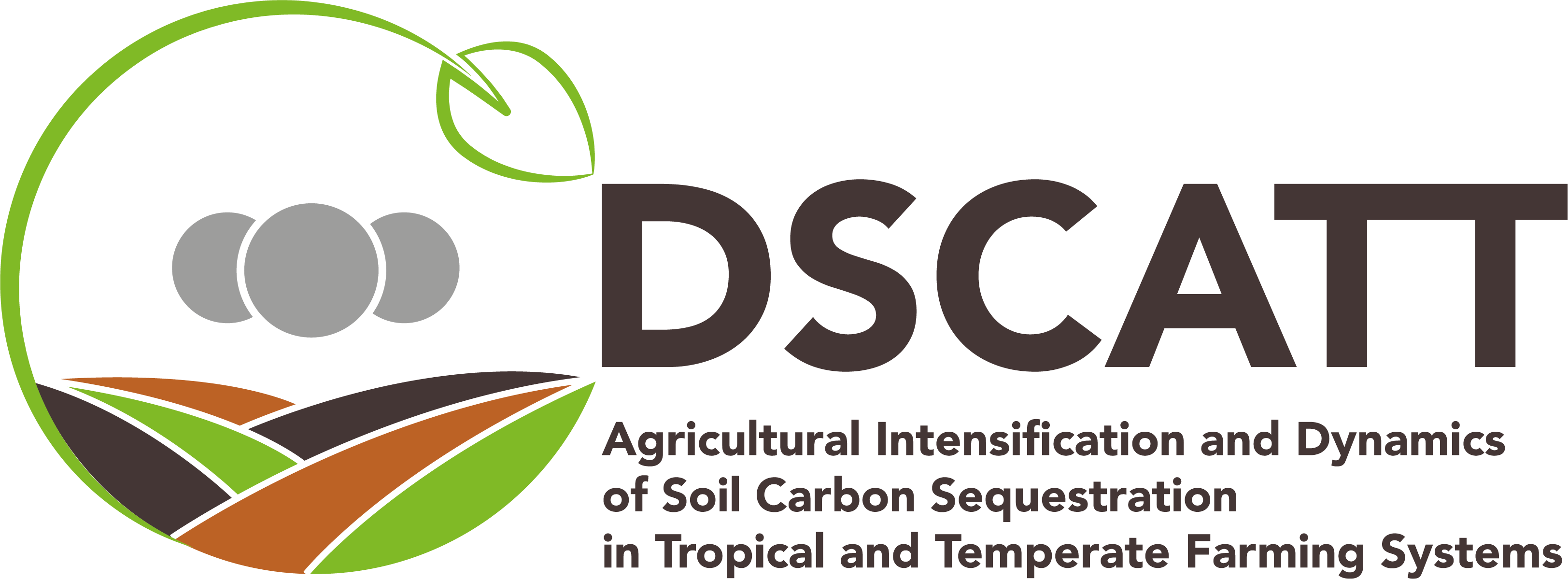Deliberation to define strategies
Item set
- Title
-
EN
Deliberation to define strategies
-
FR
Délibérations pour définir les stratégies
Items
-
“A shared human endeavor”: farmer participation and knowledge co-production in agroecological research
Farmer participation in the co-production of knowledge has been claimed to have many benefits, including its capacity to address the knowledge intensiveness and ecological specificity that underpins agroecology. The complexity of agroecological knowledge systems have until now presented considerable challenges to researchers looking to develop research practices adaptable to and commensurate with the integrative ambition of agroecology. As with agroecology in general, participation in research cannot be delivered in a one-size-fits-all approach, with each case needing to be designed on the basis of numerous factors, especially including the needs, objectives, and capacities of diverse participants. This article presents a conceptual framework to explore farmer participation in the co-construction of knowledge in agroecology. Through an exploration of three UK-based participatory research projects we develop a framework to better understand the practical challenges and opportunities for deepening the co-construction of knowledge. Using a combination of field notes, interviews, and survey data, the article concludes by offering practical reflections on ways to co-design research based on the type of knowledge(s) produced, the types of participation envisaged, as well as the needs and capacities of the research participants themselves. The framework presented in the article is offered as a tool to guide early stages of research design in order to balance the complex and changing needs of researchers and their collaborators. -
Effects of microplastics on soil C and N cycling with or without interactions with soil amendments or soil fauna
Microplastics (MPs) enter the global soil ecosystem in significant quantities, and in agricultural lands, interact with soil amendments (e.g, fertilisers, pesticides, biochar), pollutants (e.g., heavy metals and acid rain) and soil fauna (e.g., earthworms and microbial biomass) which impacts carbon (C) and nitrogen (N) cycling in soil in ways that are largely unexplored. Here, we analysed the difference in the responses of soil C and N contents, greenhouse gas emissions and soil enzyme activities in experiments where MPs alone or MPs in combination with other soil amendments or soil fauna had been explored, by conducting a global meta-analysis of 2543 observational data extracted from 84 published studies. The results show that MPs alone are associated with significantly increased soil C storage and altered soil N pool composition, increased soil carbon dioxide (CO2) and nitrous oxide (N2O) emissions, reduced soil ammonia (NH3) emissions, increased activity of one of the five major enzymes related to C cycle, and increased activity of three of the four major enzymes related to N cycling in soil. Experiments that explored the combined effects of MPs combined with fertilisers on soil C and N contents and enzyme activities indicated greater effects than MPs alone. However, the effects of MPs combined with soil fauna, heavy metals, acid rain, glyphosate, and carbon nanotubes on soil C and N cycling differed from findings of studies that considered the effects of MPs alone. The results of this meta-analysis provide a theoretical basis for further study of the effects of MPs on C and N cycling in fertilized agricultural soil, compound-contaminated soil and acidified soil. We also show that, despite the global importance of MPs in soil, the number of studies of their effects on soil C and N cycling is relatively few, and further research on the mechanisms of interactions of MPs with multiple soil amendments in soil systems is urgently needed. -
Smallholder farmers' perceptions of the natural and anthropogenic drivers of deforestation and forest degradation: a case study of Murehwa, Zimbabwe
Forests are an integral part of social-ecological systems, which provide economic, cultural and ecosystem services. The natural and socio-economic drivers of deforestation and forest degradation are affecting the sustainability of social-ecological systems. Several measures have been put in place to manage forest ecosystems. Nonetheless, multiple and complex drivers of deforestation and forest degradation have compromised these measures. The study sought to establish smallholder farmers’ perceptions on the multiplicity and complexity of factors to which they attribute deforestation and forest degradation. This is important for the successful formulation of improved forest conservation and management frameworks. The study was carried out with smallholder farmers in three wards of Murehwa District in Mashonaland East Province of Zimbabwe. Using ‘Q’ sort and factor analysis, we find that the smallholder farmers attribute deforestation and forest degradation to climate change, insects and diseases, unavoidable external events, a lack of alternative sources of fuel and the failure of existing institutional arrangements. Under such circumstances, forest governance and management efforts that focus solely on controlling human activities may not bring desired outcomes. Therefore, there is a need to take into account external factors when designing an effective contextual forest management strategy or framework. -
What is at Stake in Deliberative Inquiry? A Review About a Deliberative Practice
Despite the growing interest in deliberative and dialogue models the research literature lacks investigations of the underlying assumptions of deliberative methods. Starting from the current popularity as well as the broad use of the method of deliberative inquiry -one example of such a deliberative method- this article aims to identify approaches and underlying assumptions of deliberative inquiry. Therefor a systematic literature review of empirical research, of descriptions of practical deliberative procedures and of theoretical research of deliberative inquiry is used. This review demonstrates that the method of deliberative inquiry is elaborated and used within different contexts with a corresponding range of rationales: From (1) a procedure to tackle curriculum questions through (2) a way of investigating and agreeing upon policy actions to (3) collaboratively researching issues. By describing the three approaches and by investigating the assumptions of deliberative inquiry within each approach, we demonstrate a range of rationales behind this method. Despite the distinctions, the primary goal of all manifestations of deliberative inquiry is similar: to contemplate a practical problem in a systemic and collaborative way, to weigh arguments for possible solutions and to make (even temporarily) a decision. This article concludes with future research perspectives. -
Deliberation and Diversity: Perceptions of Small Group Discussions by Race and Ethnicity
One of the challenges facing public deliberation scholars and practitioners is to identify deliberative processes that address inequities in interaction and foster active participation among all members of ethnically or racially diverse groups. This study draws from cocultural communication theory and uses mixed methodology to examine the experiences of citizens assigned to racially/ethnically diverse small groups who participated in “By the People: Dialogues in Democracy”—a national/local initiative and public deliberation event. One hundred participants in a local deliberation in Omaha, Nebraska, completed a postevent questionnaire, and 20 participants were subsequently interviewed. Data were analyzed to compare the perceptions of White participants and participants of color (African American, Hispanic, Native American, Asian American). Analysis of variance indicated that participants of color perceived greater communication quality and group effectiveness and experienced more satisfaction with their small groups than did Whites. Both White interviewees and interviewees of color said they valued being exposed to diverse group members and perspectives, the respectful tone of the group interaction, the facilitators’ ability to guide the interaction, and the opportunity to learn. Consistent with cocultural communication theory, participants of color specially praised the equal opportunity to speak in their groups and the experience of being heard. The results fortify the importance for public deliberation practitioners to take concerted steps to ensure racial/ethnic diversity and egalitarian interaction of members in deliberative small groups. -
Which public and why deliberate? – A scoping review of public deliberation in public health and health policy research
Deliberative methods are of increasing interest to public health researchers and policymakers. We systematically searched the peer-reviewed literature to identify public health and health policy research involving deliberative methods and report how deliberative methods have been used. We applied a taxonomy developed with reference to health policy and science and technology studies literatures to distinguish how deliberative methods engage different publics: citizens (ordinary people who are unfamiliar with the issues), consumers (those with relevant personal experience e.g. of illness) and advocates (those with technical expertise or partisan interests). We searched four databases for empirical studies in English published 1996e2013. This identified 78 articles reporting on 62 distinct events from the UK, USA, Canada, Australasia, Europe, Israel, Asia and Africa. Ten different types of deliberative techniques were used to represent and capture the interests and preferences of different types of public. Citizens were typically directed to consider community interests and were treated as a resource to increase democratic legitimacy. Citizens were preferred in methodological studies (those focused on understanding the techniques). Consumers were directed to focus on personal preferences; thus convened not as a source of policy decisions, but of knowledge about what those affected by the issue would accept. Advocatesdwho are most commonly used as expert witnesses in juriesdwere sometimes engaged to deliberate with consumers or citizens. This almost always occurred in projects directly linked to policy processes. This suggests health policymakers may value deliberative methods as a way of understanding disagreement between perspectives. Overall however, the ‘type’ of public sought was often not explicit, and their role not specified. This review provides new insight into the heterogeneity and rising popularity of deliberative methods, and indicates a need for greater clarity regarding both the constitution of publics and the relative usefulness of different deliberative techniques. -
Deliberation as a catalyst for reflexive environmental governance
Ecological or ecosystemic reflexivity involves the capacity of social-ecological systems to reconfigure themselves in response to reflection on their performance. In this paper we argue that deliberation is central to reflexive governance, mainly because it can reconcile many if not most of the sometimes contradictory claims that are made in the literature about its drivers. We take four key dimensions along which reflexivity may be sought, each of which features a binary that puts two plausible drivers of reflexivity in tension with one another: (i) sources of knowledge (public participation versus expertise); (ii) composition of public discourse (diversity versus consensus); (iii) institutional architecture (polycentricity versus centralization); (iv) institutional dynamics (flexibility versus stability). In each case, we demonstrate that deliberative ideas can manage the tension between the two plausible drivers of reflexivity. -
Sustainability as a cultural transformation: the role of deliberative democracy
What might break the ‘glass ceiling’ that has so far prevented a deep sustainability transformation? I consider the cultural dimension of such a transformation. Cultural meanings not only provide the building blocks of individuals’ life stories, but collectively construct social reality, powerfully shaping how people think and act. Any glass ceiling to societal transformation is partly cultural, and can be reproduced by a society’s ‘political grammar,’ which constrains what can be perceived and politically advanced. Contesting these limits is vital for making glass ceilings visible and opening up new transformative potentials. Consequently, overcoming the glass ceiling of the environmental state must be understood as a cultural transformation: a process of ‘meaning-making’ that re-orientates people’s fundamental norms and outlooks. This adds nuance to the debate around democracy and sustainability; it is not democracy in general, but only a particularly vibrant and critical deliberative sphere that can provide the necessary political foundation. -
Transforming Rural Water Governance: Towards Deliberative and Polycentric Models?
In recent years, many countries have experienced a formal shift from command-and-control and prescriptive management of natural resources towards policy making and planning processes that build on collaboration, negotiation and deliberation among policy-makers, scientists and local stakeholders (Bouwen and Tallieu, 2004; Warner, 2006; Ansell and Gash, 2008). Public participation in environmental decision-making and implementation has become part and parcel of the environmental governance rhetoric in many industrialised countries (Sabatier et al., 2005; Messner et al., 2006; Cronin and Ostergren, 2007; Ferreyra et al., 2008; Medd and Marvin, 2008; Marshall, in press). In emerging economies and developing countries 'participatory environmental governance' has also been discussed as an alternative to centralised, top-down approaches towards natural resource conservation and management (e.g. Gupte and Bartlett, 2007; Neaera Abers, 2007; Huang et al., 2009). At the international policy level, the Rio Declaration and the Agenda 21 (1992), the World Summit on Sustainable Development (WSSD) Johannesburg Plan of Implementation (2002), and the 1998 UN Economic Commission for Europe (UNECE) "Convention on Access to Information, Public Participation in Decision-making and Access to Justice in Environmental Matters" (the so-called Aarhus Convention) have been the most important drivers for enhanced citizen participation in environmental governance. -
Co-designing transformation research: lessons learned from research on deliberate practices for transformation
Co-production of new knowledge can enhance open and integrative research processes across the social and natural sciences and across research/science, practice and policy interrelationships. Thus, co-production is important in the conduct of research about and for transformations to sustainability. While co-design is an integral part of co-production, it often receives limited attention in the conduct of co-produced research. This paper reports on lessons learned from an early stage of the co-design process to develop research on deliberate practices for transformative change. Key lessons learned are the need to: (1) ensure co-design processes are themselves carefully designed; (2) encourage emergence of new ways of thinking about problem formulation through co-design; (3) carefully balance risks for the participants involved while also enhancing opportunities for intellectual risk taking; (4) facilitate personal transformations in co-design as a way to stimulate and encourage further creativity; and (5) for funders to carefully and constructively align criteria or incentives through which a project or future proposal will be judged to the goals of the co-design, including for instrumental outcomes and objectives for creativity and imagination. Given that co-design necessarily involves a reflective practice to iteratively guide emergence of new thinking about the practices of change, co-design can itself be considered an important deliberate practice for transforming the conduct of research and the contribution of that research to social transformations. -
Reasons and Inclusion: The Foundation of Deliberation
This article provides two empirical evaluations of deliberation. Given that scholars of deliberation often argue for its importance without empirical support, we first examine whether there is a “deliberative difference”; if actors engaging in deliberation arrive at different decisions than those who think on their own or “just talk.” As we find a general convergence within deliberation scholarship around reasons and inclusion, the second test examines whether these two specific mechanisms are central to deliberation. The first evaluation looks at outcomes within a laboratory setting; the second at videotapes of decision-making processes within this setting. Our results show two things. First, in terms of outcomes, deliberation differs from other forms of interaction. Second, reasons and inclusion are central to the deliberative process. The more reasons provided within each group, the more likely participants were to change their position; similarly, the more inclusive groups were, the more likely participants were to change their position. We conclude by arguing that more work needs to be done, both in evaluating the deliberative difference and in disaggregating deliberation and examining its central explanatory mechanisms. -
Deliberative Methods for Understanding Environmental Systems
Environmental problem solving needs science but also inevitably requires subjective judgment. Science can help in dealing with subjectivity, because scientists have long experience developing institutions and practices to address the subjective and value-laden choices that are essential to scientific progress. Democracy has also developed approaches to the problem. The underlying principles can be applied to environmental policymaking. This article explores these issues in the context of decisions about environmental risks, drawing on the work of the National Research Council and other sources. It suggests some guidelines for risk deliberation—including broad-based participation, commitment to scientific quality, explicit attention to values, transparency of deliberative processes, and rules for closure and reconsideration—and recommends that an experimental approach be employed to learn how best to use deliberative methods. -
Precautionary Principle, Pluralism and Deliberation : Introduction
The purpose of this book is to provide a thorough and balanced examination of the precautionary principle, considering its huge potential to express responsibility in the fields of research and innovation. The precautionary principle has a key part to play in the face of the most disruptive innovations. It is one of the most creative innovations for implementing responsibility in response to new fears surrounding environmental resilience or emerging technologies. It also constitutes one of the most original and well-received proposals of the European Union. RRI owes a certain debt to this institution, and still has a lot to learn from the precautionary principle4. In this work, we shall consider the ethics of the principle of responsibility.


